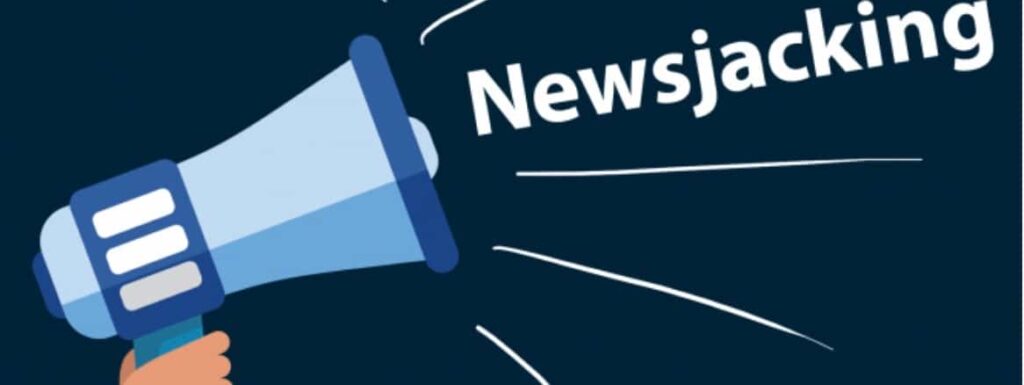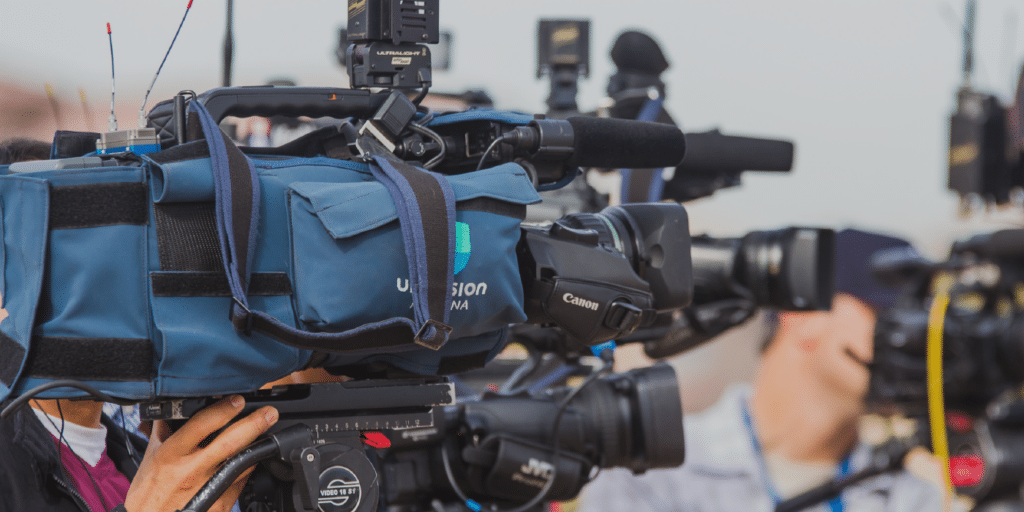In today’s fast-paced digital world, businesses and individuals strive to stay relevant and capture the attention of their target audience. One popular technique that has emerged in recent years is newsjacking. This techy exploration dives into the concept of newsjacking, examining its potential benefits and drawbacks. Join us as we talk about newsjacking and weigh the advantages of capitalizing on trends against the ethical considerations of potentially exploiting events.
Newsjacking is the practice of leveraging current news or trending topics to generate brand awareness, gain media coverage, and engage with the target audience. By injecting their own content, opinions, or perspectives into ongoing conversations, businesses and individuals aim to ride the wave of public interest and capitalize on the attention surrounding a particular news event.
Contents
The Pros of Newsjacking
- Increased Visibility and Exposure: By aligning their brand or content with a popular news story, organizations can skyrocket their visibility and appeal to a wider audience. Newsjacking allows businesses to piggyback on existing media coverage and tap into the public’s interest, potentially resulting in heightened brand recognition and exposure.
- Timely Relevance: Newsjacking enables businesses to demonstrate their agility and relevance by addressing current events or trends. By offering insights or solutions related to a breaking news story, organizations can position themselves as industry thought leaders and establish credibility among their target audience.
- Social Media Engagement: Newsjacking often takes place on social media platforms, where real-time conversations unfold. By actively participating in these discussions, organizations can engage with their audience, spark conversations, and increase social media interaction and shares.
- Cost-Effective Marketing: Compared to traditional advertising or marketing campaigns, newsjacking can be a cost-effective strategy. Rather than investing significant resources in creating and promoting original content, organizations can leverage existing news stories and ride the wave of public interest without extensive financial investments.
The Cons of Newsjacking
- Ethical Considerations: Newsjacking requires careful ethical considerations. Exploiting tragic events or sensitive topics for promotional purposes can be seen as disrespectful or opportunistic. It is crucial for organizations to exercise sensitivity and ensure that their newsjacking efforts do not cross ethical boundaries or offend the public.
- Lack of Control: When engaging in newsjacking, organizations relinquish control over the narrative. While it offers an opportunity to join ongoing conversations, there is always a risk of negative associations or misinterpretations. It is important for organizations to monitor the public’s response and be prepared to handle any potential backlash.
- Relevance and Authenticity: Effective newsjacking requires relevance and authenticity. If an organization’s attempt to capitalize on a news event feels forced, irrelevant, or insincere, it can harm the brand’s reputation and credibility. Genuine alignment with the news story and the ability to offer meaningful contributions are essential for successful newsjacking.
- Timing and Risks: Newsjacking requires a keen sense of timing. Being too late to the conversation can render the effort irrelevant, while being too early may result in a lack of context or incomplete information. Additionally, organizations must be prepared for the risks associated with newsjacking, such as being overshadowed by larger players or facing backlash from competitors.
Finding the Balance: Responsible Newsjacking
To effectively utilize newsjacking while maintaining ethical standards, organizations should consider the following:
- Relevance and Alignment: Ensure that newsjacking efforts align with your brand values, expertise, and target audience. Choose news stories that naturally connect to your industry or area of expertise.
- Authenticity and Value: Offer valuable insights or unique perspectives related to the news story. Provide helpful information, expert analysis, or solutions that genuinely contribute to the ongoing conversation.
- Sensitivity and Respect: Exercise sensitivity when newsjacking, particularly when dealing with sensitive or tragic events. Avoid exploiting or capitalizing on situations that may offend or disrespect others.
- Monitor and Respond: Continuously monitor the public’s response to your newsjacking efforts. Be prepared to engage in conversations, respond to feedback, and address any concerns or criticisms in a timely and respectful manner.
Conclusion
Newsjacking can be a powerful strategy for organizations to increase visibility, engage with their audience, and demonstrate relevance. Nonetheless, it is critical to strike a balance between capitalizing on trends and respecting the ethical boundaries of exploiting events. By carefully considering relevance, authenticity, timing, and ethical implications, organizations can effectively navigate the world of newsjacking, leveraging its benefits while maintaining a responsible and respectful approach.




